Jimmy Holder, M.D. Ph.D. - Principal Investigator
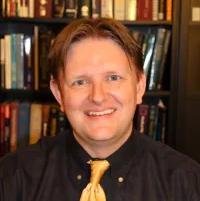
Jimmy Holder M.D., Ph.D. began his training at the Johns Hopkins University, where he obtained his bachelor’s degree in biology. While at Johns Hopkins, he was awarded the Provost’s Award for Research and Excellence.
After graduating from Hopkins, he was accepted into the University of Texas Southwestern’s M.D./Ph.D. graduate program. Under the guidance of scientific mentor, Dr. Andrew Zinn, Dr. Holder honed his skills in molecular biology and cell culture and was introduced to the techniques of mouse modeling in human disease. During his time as a graduate student, he identified a novel obesity gene, SIM 1, in a child that had early-onset, profound obesity. By utilizing a mouse model, he was able to demonstrate that over-expression of SIM 1 protects against diet-induced obesity via gene-regulated actions upon the central melanocortin system. The initial results of his findings were published in Human Molecular Genetics with his co-author and mentor, Dr. Zinn.
Following graduation from UT Southwestern, Dr. Holder pursued a post-doctoral fellowship in neurogenetics at the University of California, San Francisco. Under the mentorship of Dr. Louis Ptacek, Dr. Holder enhanced his knowledge analyzing rodent behaviors to model human neurologic diseases. He accomplished this by performing research relating to the role of a putative circadian rhythm gene in sleep homeostasis within the mouse model. The results of his study yielded a publication in Science in 2009. Dr. Holder successfully completed his post-doctoral training in 2007; yet, this training at UCSF left him with a recognized need for hands-on clinical training in attempts to inform and guide his future research endeavors.
From 2007 to 2012, Dr. Holder trained as a child neurology resident at the Baylor College of Medicine in Houston, Texas. With this training, Dr. Holder gained a deeper appreciation and understanding for the breadth of neurologic disease in children. His ABPN Certification in Neurology/Child Neurology was conferred in 2013.
During his time in residency training, Dr. Holder first encountered a child with an autism spectrum disorder, known as Phelan McDermid syndrome. Caused by a loss of function mutation in the SHANK3 gene, this clinical entity enthralled Dr. Holder, leading him to question the underlying neuronal and circuitry mechanisms of neurodevelopmental disorders through the detailed study of the SHANK3 gene.
Under the guidance of mentor, Dr. Huda Zoghbi, Dr. Holder discovered that mice that over express SHANK3 have behavioral abnormalities in addition to epilepsy, the results of which were published in Nature in 2013.
After completing his residency, Dr. Holder opened up the Holder Lab in the Jan and Dan Duncan Neurological Research Institute, and Dr. Holder has established a SHANKopathy clinic at Texas Children’s Hospital in order to provide care for children demonstrating both loss and gain of function mutations within this gene.
Frank Lin
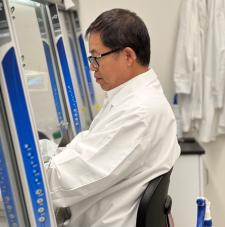
Frank (Lunhui) Lin has over 20 years of experience in biomedical research, having worked in both the Boston and Houston areas. Currently, he serves as a Scientist and Lab Manager in Dr. Holder’s group at Baylor College of Medicine. Frank is deeply engaged in investigating the genetic and neurobiological foundations of neurodevelopmental and neuropsychiatric disorders, with the aim of discovering cures and developing future therapies to improve patient outcomes.
Frank holds a B.Sc. and M.Sc. in Biochemistry, as well as a Ph.D. in Cell Biology, all from Xiamen University. Outside of the lab, he enjoys road trips to explore nature and playing bridge games.
Gopinath Mondal
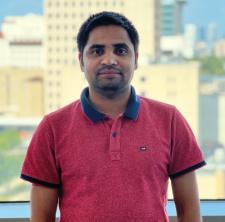
Gopinath is a postdoctoral researcher focused on investigating the cellular and molecular mechanisms underlying undiagnosed neurodevelopmental and neuropsychiatric disorders, such as Autism Spectrum Disorder (ASD) and Phelan-McDermid Syndrome. His work aims to uncover key pathways and identify driver genes responsible for impaired neurogenesis in these disorders. By utilizing disease mouse models and neurons derived from induced pluripotent stem cells (iPSCs), he seek to understand the genetic and regulatory mechanisms at play, with the ultimate goal of contributing to clinical advancements that improve patients’ quality of life.
Ashwini Ashwathanarayan
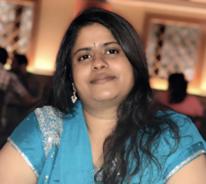
Ashwini Ashwathanarayan holds a Bachelor’s degree in Physiotherapy (BPT) from KIMS, RGUHS, Bengaluru, and both a Master’s (MSc.) and Ph.D. in Regenerative Medicine from MAHE, Bengaluru. She is passionate about exploring the fundamental molecular mechanisms underlying neurodevelopmental and neuromuscular diseases, with the goal of translating this knowledge into therapeutic applications.
Her current research centers on investigating the molecular mechanisms of a rare neurodevelopmental disorder. She utilizes induced pluripotent stem cells (iPSCs) derived from patients as a model system, directing these iPSCs toward neural differentiation to study their development and functionality. By gaining insights into the molecular basis of the disease, Ashwini aims to contribute to the development of therapeutic strategies.
Outside of her research, Ashwini enjoys spending time with her family, traveling, and listening to music.
Hao Chau
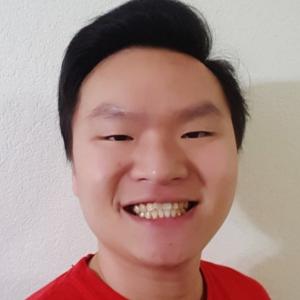
Hao is a biotechnology graduate specializing in bioproduction, bioinformatics, and molecular biology. Since joining Dr. Holder’s group in 2019 while pursuing a master’s degree in biotechnology, He has focused on investigating neuroscience pathology using transgenic mouse and fly models to explore the mechanisms behind mutant genetic markers. Their work includes mouse genotyping, behavioral testing, neuronal imaging, and tracing.
In their free time, Hao conducts AI simulations using Bard technology to explore potential drugs and treatments. They also enjoy practicing archery, coding, and working on computational projects.








